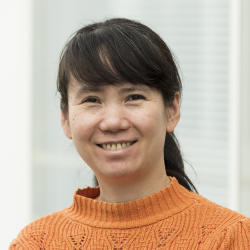Influence of sinkhole formation on robustness of building structures
Start date
1 October 2024Duration
3.5 yearsApplication deadline
Funding source
UKRI and/or University of SurreyFunding information
We are offering the UKRI standard stipend (currently £18,622 per year) with an additional bursary of £1,700 per year for full 3.5 years for exceptional candidates. In addition, a research, training and support grant of £3,000 over the project is also offered. Full home or overseas tuition fees (as applicable) will be covered.
About
Understanding and predicting the vulnerability of residential and commercial buildings to natural hazards is important to improve safety and quality of life of local communities within urban areas and the built environment. Buildings are sensitive to ground movements which can lead to collapse, high repairing costs or demolition. This project focuses on sinkholes which are a type of geohazard caused by internal dissolution processes in the ground. The project aims at developing novel numerical approaches to model ground dissolution processes leading to sinkhole formation and failure propagation mechanisms within the soil-structure system. There are two key steps in the investigations: (1) sinkhole formation and ground movement (2) soil-structure interaction and structural damages in buildings. The dissolution processes will be modelled using the concept of systematic particle element removals using Discrete Element Method (DEM) which captures different ground loss and erosion scenarios based on existing field evidence. The sinkhole formation and ground failure propagation process will then be simulated. The impact of ground movement on surrounding structures and structural damages will be modelled using Finite Element Method (FEM). The micro-mechanical ground erosion and meso-scale soil-structure interactions will be supervised by Dr Liang Cui, who is an expert in DEM and geotechnics; the macro-scale modelling of structural damage and robustness and resilience of building will be supervised by Dr Juan Sagaseta; the soil-structure interactions will be jointly supervised by both supervisors.
Eligibility criteria
Open to both UK and international candidates.
Up to 30% of our UKRI-funded studentships can be awarded to candidates paying international rate fees. Find out more about eligibility.
You will need to meet the minimum entry requirements for our PhD programme.
Knowledge in geotechnical engineering and structural engineering are essential. Programming skills are desirable.
How to apply
Applications should be submitted via the Civil and Environmental Engineering PhD programme page. In place of a research proposal, you should upload a document stating the title of the project that you wish to apply for and the name of the relevant supervisor.
Studentship FAQs
Read our studentship FAQs to find out more about applying and funding.
Application deadline
Contact details

Studentships at Surrey
We have a wide range of studentship opportunities available.

